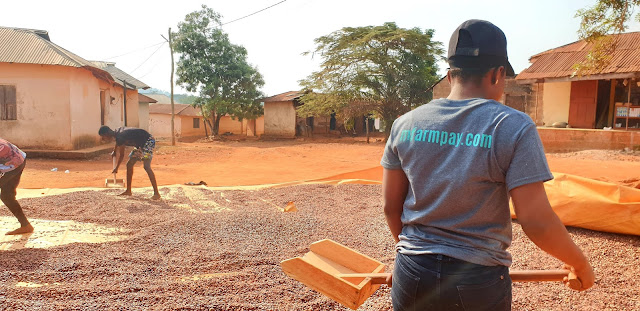Cameroon is currently the fourth largest cocoa producer in the world, with a production level between 280,000 and 290,000 Metric Tons (MT) per year in the last two years. The cocoa sector is an important source of job creation, with an estimate of around 400,000 jobs generated by the cocoa value chain: 293,000 farmers, 2,800 formal workers, 73,000 rural workers at full-time equivalent, and 29,200 family jobs. Moreover, cocoa is an important source of State revenue2. The cocoa value chain in Cameroon generates a total (direct + indirect) value added of €400 million and contributes 1.2% to the national GDP and 8.2% to the agricultural GDP. When considering the €7,8 million invested in public subsidies and several projects, the cocoa value chain generates a balance of around €37 million per year contributing to the public finances of the country2. The Cameroonian government recognizes the importance of the cocoa sector for its economy and announced ambitious goals to expand cocoa production to 600 000 MT by 2025 and doubling this quantity by 2030.
The importance of the agriculture sector to the country’s economy is marked by its significant contribution of 76.38% of GDP in 2017, up from 68% in 2016. However, the agriculture sector has been identified as a driver of deforestation and forest degradation. The principal agents behind the drivers were identified to be small and medium holder farmers. Sub-sector identified were cocoa, rubber, coffee, cotton, oil palm, etc. Some studies have reported agriculture activities within protected areas, but this has not been clearly articulated by the government as a threat to the permanent forest domain.
Agriculture in Africa Media
Editor@agricinafrica.com
Farmer Helpline: +233 5 000000 996


If the government will deem it necessary to help farmers directly through their cooperatives
ReplyDelete